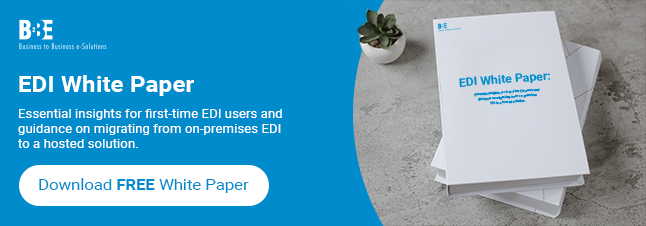EDI is an essential tool for businesses that want to exchange data electronically with its trading partners. EDI documents contain structured data that can be easily processed and integrated into an organisation’s business system. However, understanding these different EDI document formats can sometimes be a daunting task for those new to the process.
This blog will highlight key questions to ask in order to understand the EDI document formats required for electronic trading. These questions include identifying your business requirements, understanding trading partners’ requirements, and selecting the appropriate technology and software to implement EDI.
1. Do you currently need to handle a number of different EDI document formats? For example, XML, ASCII, UN/EDIFACT, ANSI X12 etc.
Different trading partners may require different EDI document formats, and it is therefore crucial to have the capability to handle all required versions to ensure smooth transactions. Failure to handle this can result in delays, errors, and even lost business opportunities. Understanding the various EDI document formats and having the capability to handle them is essential for businesses to successfully implement EDI and reap the benefits of electronic trading.
2. Can your ERP handle all the different EDI document formats? Do you need middleware to enable integration, or to support specific customer requirements?
Not all ERP systems have built-in capabilities to handle all required EDI document formats. As a result, middleware may be required to facilitate integration and support specific customer requirements. Understanding the technical requirements and capabilities of the ERP system is essential for businesses to successfully implement EDI and streamline their operations.
3. Do you need to keep data externally to your ERP environment to enable integration, or to support customer requirements?
External data storage can be required to support different EDI document formats. This is critical in understanding the data management requirements for electronic trading. Some may require specific data elements that are not included in the ERP system. In addition, external data storage may be required to enable integration and support customer requirements.
4. Do you trade across borders and need to support other countries’ formats and comply with government trading rules and regulations?
To support other countries’ formats and also comply with government regulations, it is critical to understand regulatory requirements for electronic trading. Trading partners in different countries may require different EDI document formats. As well as that, government regulations may dictate specific requirements for data exchange.
5. Can you take advantage of other systems such as PEPPOL with native formats (and protocols)?
Understanding if your business could leverage other systems with native formats and protocols is critical in understanding the interoperability requirements for electronic trading. For example, PEPPOL is an interoperability framework that enables businesses to exchange EDI documents with trading partners across Europe using a common set of standards and protocols. Consequently, by using PEPPOL’s native formats and protocols, businesses can streamline their operations.
6. Do you have support staff and personnel able to interpret and manage formats for new connections or trading partners?
Implementing EDI document formats for electronic trading may require additional resources to manage new connections or trading partners who require different configurations. Ensuring that your business has the capacity to manage new connections and trading partners within the EDI systems is therefore vital in managing a successful operation.
7. Do your trading partners change EDI document formats which then requires further effort to support?
EDI document formats can evolve over time, and trading partners may then require new or updated versions to meet changing business needs. Understanding the ongoing maintenance and management requirements is therefore essential for businesses to successfully implement EDI and maintain smooth transactions.
Meer informatie
U kunt download these questions for free to share with your business here of contact us to discuss how you can implement an accounts payable solution.
About B2BE
B2BE delivers electronic supply chain solutions globally, helping organisations to better manage their supply chain processes, providing greater levels of visibility, auditability and control. We’re driven by a passion for what we do, inspired by innovation, and underpinned by a wealth of knowledge. With over 20+ years of experience, the B2BE teams operate worldwide.
Ga voor meer informatie naar www.b2be.com.

